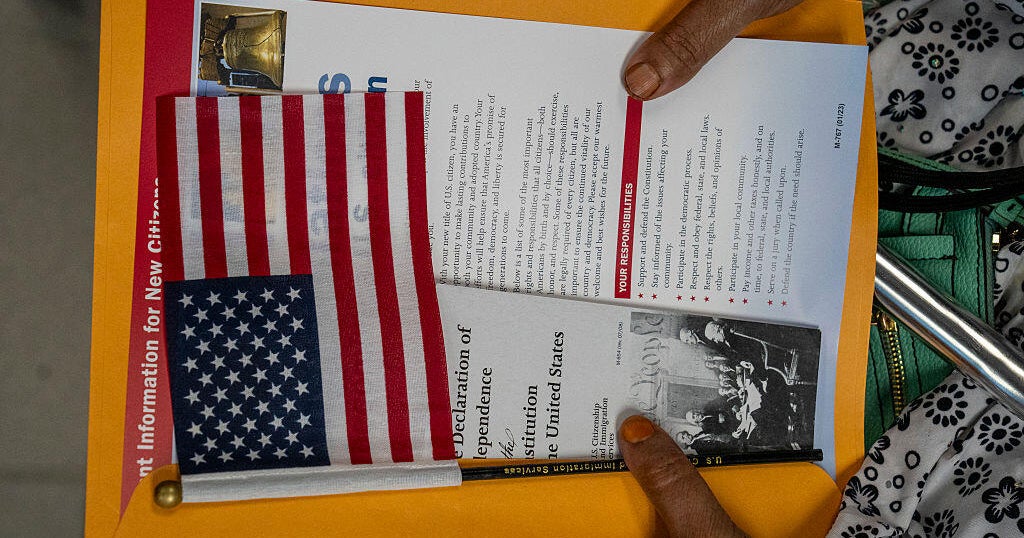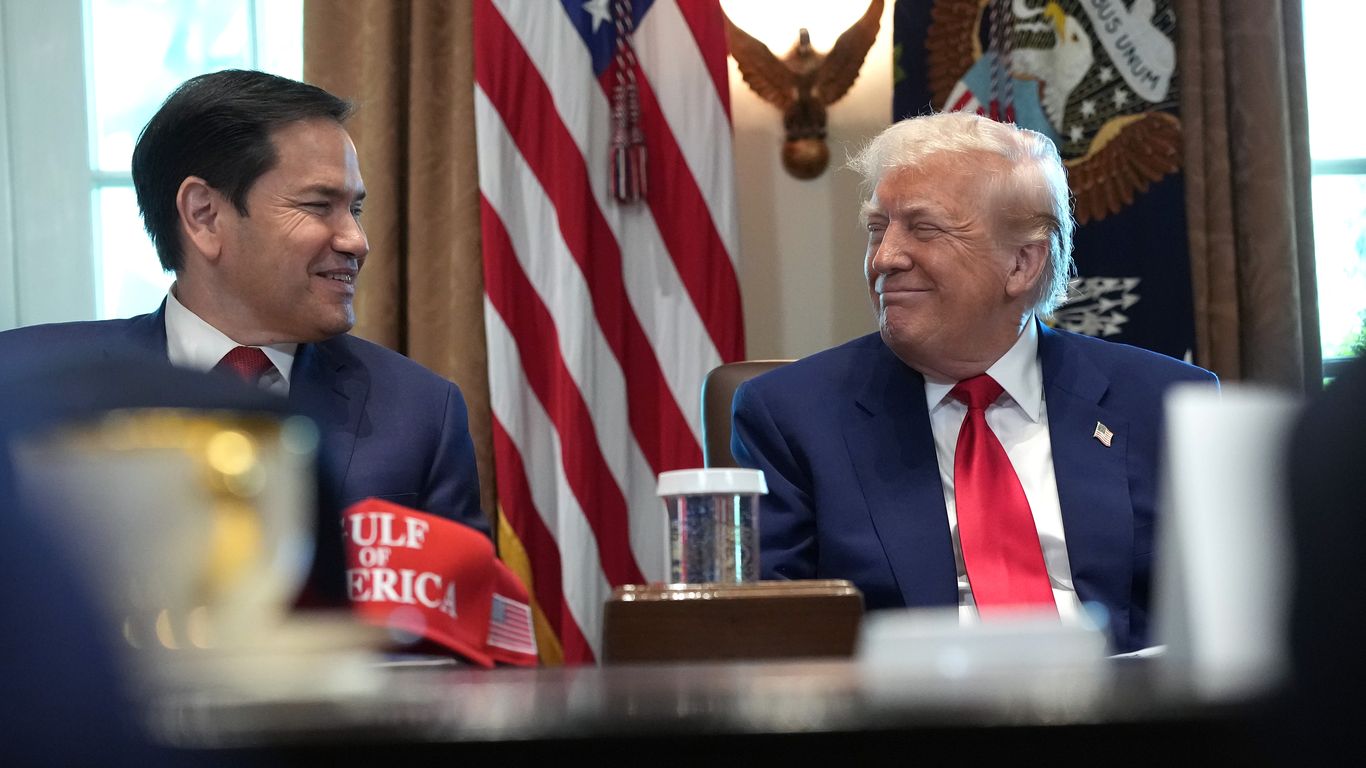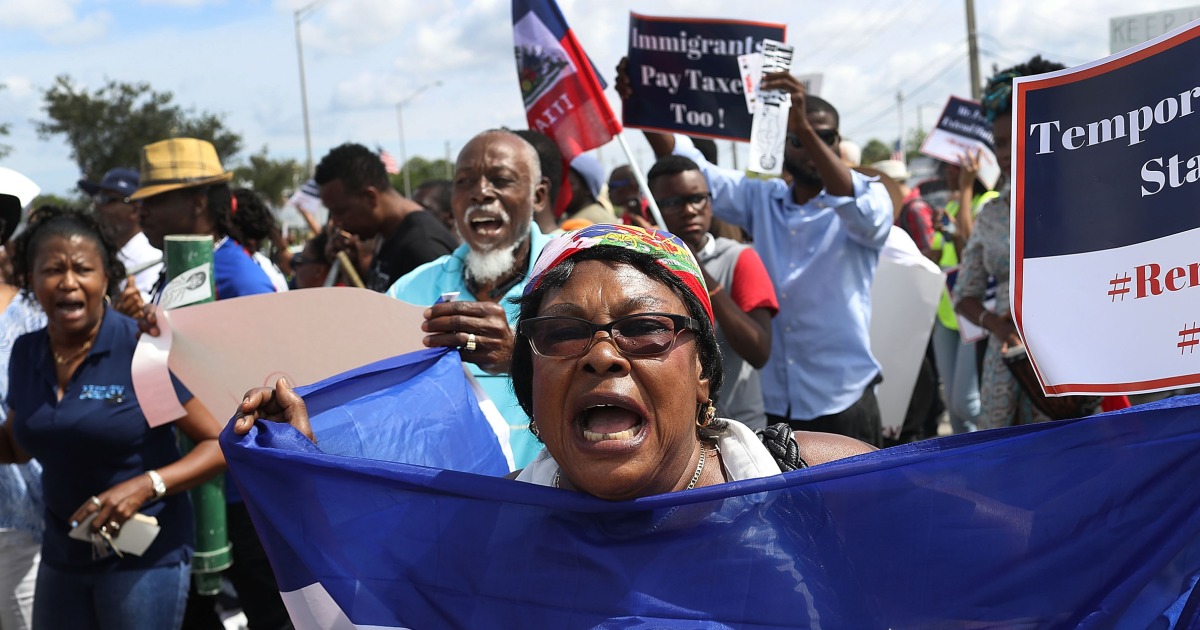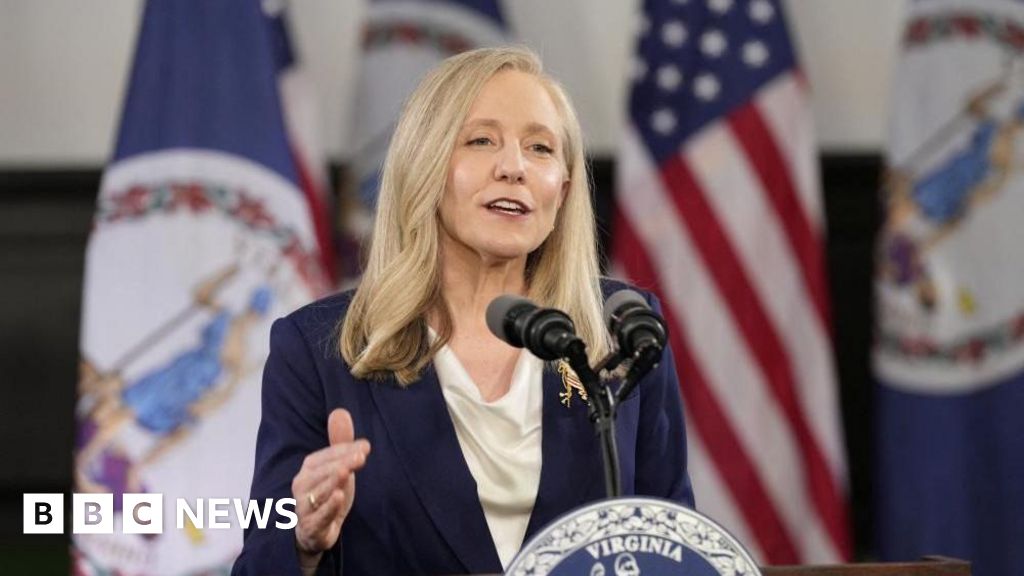Court Rules Against Trump's Use of Wartime Law to Target Alleged Gang Members
Introduction
In a recent ruling, a federal appeals court has put a stop to President Donald Trump's attempts to use an 18th-century wartime law to speed up the deportations of alleged members of a Venezuelan gang. The 5th U.S. Circuit Court of Appeals has stated that the Alien Enemies Act cannot be used by the administration to target and deport individuals based on their alleged gang membership.
Key Details
The Alien Enemies Act was initially passed during the Quasi-War with France in 1798 and was meant to allow the government to deport or imprison foreign nationals who posed a threat to national security. However, the recent ruling has put a limit on how this law can be used, emphasizing that it cannot be used to target individuals based solely on their alleged gang membership.
This decision has significant implications for the Trump administration's immigration policies, as it has been using the Alien Enemies Act as a tool to expedite deportations and justify its hardline stance on immigration. This ruling could also set a precedent for future cases involving the administration's use of this law.
Impact
The ruling by the appeals court has been lauded by immigrant rights groups, who have been fighting against the administration's immigration policies. It is seen as a victory for due process and the protection of individual rights, especially for those who are vulnerable to being targeted by
About the People Mentioned
Donald Trump
Donald John Trump, born June 14, 1946, in Queens, New York, is an American businessman, media personality, and politician. He graduated from the University of Pennsylvania’s Wharton School in 1968 with a degree in economics. In 1971, he took over his family’s real estate business, renaming it the Trump Organization, through which he expanded into building and managing skyscrapers, hotels, casinos, and golf courses. Trump gained widespread fame as the host of the reality TV show *The Apprentice* from 2004 to 2015, which helped establish his public persona as a successful entrepreneur. Trump entered politics as a Republican and was elected the 45th president of the United States, serving from 2017 to 2021. His presidency was marked by significant policy actions including tax cuts, deregulation, the appointment of three Supreme Court justices, renegotiation of trade agreements (notably replacing NAFTA with the USMCA), and a focus on immigration control including border wall expansion. He withdrew the U.S. from international agreements such as the Paris Climate Accord and the Iran nuclear deal, and engaged in a trade war with China. His administration’s response to the COVID-19 pandemic was criticized for downplaying the virus’s severity. Trump was impeached twice by the House of Representatives—first in 2019 for abuse of power and obstruction, and again in 2021 for incitement of insurrection—but was acquitted by the Senate both times. After losing the 2020 election to Joe Biden, Trump challenged the results, culminating in the January 6, 2021, Capitol riot. He remains a central figure in American politics, having won the 2024 presidential election and returned as the 47th president in 2025, continuing to promote policies aimed at economic growth, border security, and military strength[1][2][3][4].
About the Organizations Mentioned
Alien Enemies Act
The **Alien Enemies Act** is not an organization but a federal law enacted in 1798 that grants the U.S. president wartime authority to detain, restrict, and deport non-U.S. citizens who are nationals of enemy countries during times of war or invasion. It specifically applies to individuals aged 14 and older who are citizens or subjects of a hostile nation present in the United States, enabling their apprehension and removal without a court hearing based solely on nationality[1][5][6]. Historically, the Act has been invoked only three times: during the War of 1812, World War I, and World War II. In the World Wars, it served as the legal basis for detaining and deporting immigrants from Germany, Austria-Hungary, Japan, and Italy, often without due process. Notably, it underpinned the internment of Japanese Americans, a deeply controversial and condemned chapter in U.S. history[1][3][6]. The Act’s application has been criticized for its disregard of constitutional rights and modern international human rights obligations, including due process and protection against discrimination and persecution[4][7]. In recent developments, President Trump invoked the Alien Enemies Act in March 2025, citing a Venezuelan transnational terrorist group allegedly conducting hostile actions within the U.S. This invocation authorized rapid deportation and detention efforts targeting Venezuelan nationals linked to this group, though concerns were raised about broad application to many Venezuelan immigrants regardless of individual ties to terrorism[1][2][3][9]. The Act remains controversial today, regarded by many legal experts and human rights advocates as outdated and incompatible with current legal standards. It bypasses normal immigration procedures and protections, raising significant civil rights concerns and calls for repeal or reform[4][7][9]. In essence, the Alien Enemies Act is a historic wartime legal tool with a complex legacy, recently revived in the contemporary geopolitical context, sparking debate over balancing national security with
5th U.S. Circuit Court of Appeals
The **5th U.S. Circuit Court of Appeals**, established in 1891, is a federal appellate court headquartered in New Orleans, Louisiana, with jurisdiction over district courts in Louisiana, Mississippi, and Texas. It reviews cases appealed from federal district courts within its region, making it a critical arbiter in civil, criminal, and administrative law matters that shape regional and national jurisprudence[1][4][5][6]. Historically, the Fifth Circuit initially included Alabama, Georgia, and Florida, but these states were reassigned to the Eleventh Circuit in 1981 to handle increasing caseloads[1][4]. The court has 17 active judgeships and is named for John Minor Wisdom, a notable judge associated with its legacy[4]. The court is recognized for its significant influence on key legal and political issues, especially in business and technology law, given its jurisdiction over economically vital states. However, it has gained notoriety in recent years as one of the most conservative federal appellate courts, often issuing rulings that affect voting rights, reproductive rights, and regulatory policies. Some observers describe it as a right-wing activist court that has issued rulings viewed as restricting democratic participation and regulatory oversight, which has profound implications for businesses and technology governance in its states[2][3][7]. Despite its conservative bent, the 5th Circuit plays a vital role in shaping legal debates that reach the U.S. Supreme Court, influencing the national legal landscape even when its decisions are reversed. Its rulings often push the boundaries of legal theory and policy, affecting areas such as drug regulation, gun safety, and election law, which are crucial to business operations and technological innovation[3]. Currently led by Chief Judge Jennifer W. Elrod, the court continues to hear and decide cases that impact law, commerce, and governance across a diverse and economically important region of the United States[5][6]. Its decisions remain closely watched by legal experts, business leaders, and policymakers interested in the
Trump Administration
The **Trump Administration** refers to the executive branch of the United States government under President Donald J. Trump, covering two non-consecutive periods: his first term from 2017 to 2021 and his second term beginning in 2025. As an organization, it is responsible for executing federal laws, shaping public policy, and managing national affairs during its tenure. During the **first Trump Administration (2017–2021)**, the administration pursued a wide-ranging agenda focused on immigration reform, economic nationalism, deregulation, judiciary appointments, and foreign policy shifts. Key actions included building and expanding the U.S.-Mexico border wall—completing 458 miles by January 2021—and implementing strict immigration policies such as travel bans from several predominantly Muslim countries and rescinding the DAPA amnesty program[2]. The administration withdrew the U.S. from the Trans-Pacific Partnership trade deal, renegotiated NAFTA into the USMCA, and signed the "Buy American and Hire American" executive order to prioritize American workers[1][3][5]. Judicially, Trump appointed three Supreme Court justices—Neil Gorsuch, Brett Kavanaugh, and Amy Coney Barrett—significantly influencing the federal judiciary with over 200 judicial appointments[5]. The administration also focused on military expansion, combating ISIS, addressing the opioid crisis, and responding to the COVID-19 pandemic with vaccine development support[5]. Foreign policy was marked by controversial decisions including troop withdrawals from northern Syria, reinforced support for Saudi Arabia, and tensions with Iran and North Korea[4]. The administration faced two impeachments: first in 2019 over Ukraine dealings and again in 2021 following the January Capitol riot; Trump was acquitted by the Senate both times[4][5]. After losing the 2020 election, Trump returned for a **second term starting in 2025**, continuing his policy priorities with new regulatory changes and political appointments[6][8]. The Trump Administration
Quasi-War
The term "Quasi-War" does not refer to an organization but rather to an undeclared naval conflict between the United States and France from 1798 to 1800. This historical event was pivotal in shaping early American foreign policy and military strategy. ## History The Quasi-War emerged from tensions following the French Revolution and the ongoing wars between France and Great Britain. The conflict was sparked by France's seizure of American ships trading with Britain, leading to over 316 American vessels being captured by French privateers. In response, the U.S. reconstituted its Navy in 1798 and authorized military action against France[2][3]. ## Key Achievements - **First Seaborne Conflict**: The Quasi-War marked the first major naval engagement for the newly established U.S. Navy, demonstrating its ability to protect American shipping abroad[3][6]. - **Diplomatic Impact**: The conflict tested the young Federal government's ability to manage international relations and military actions without a formal declaration of war[4][5]. - **Informal Alliance**: The U.S. Navy informally cooperated with the Royal Navy to reduce losses, marking an early instance of international naval cooperation[2][8]. ## Current Status The Quasi-War ended with the Convention of 1800, following the replacement of the French First Republic by the Consulate. This event has no current organizational status but remains a significant historical precedent for U.S. foreign policy and military actions[2][5]. ## Notable Aspects - **Neutrality and Trade**: The conflict highlighted the challenges of maintaining neutrality in international trade during times of war[1][6]. - **Historical Precedent**: It established legal precedents for Congress's authority to authorize military actions without a formal declaration of war, influencing future U.S. military engagements[2][5]. Despite not being an organization, the Quasi-War is a crucial chapter in American
















